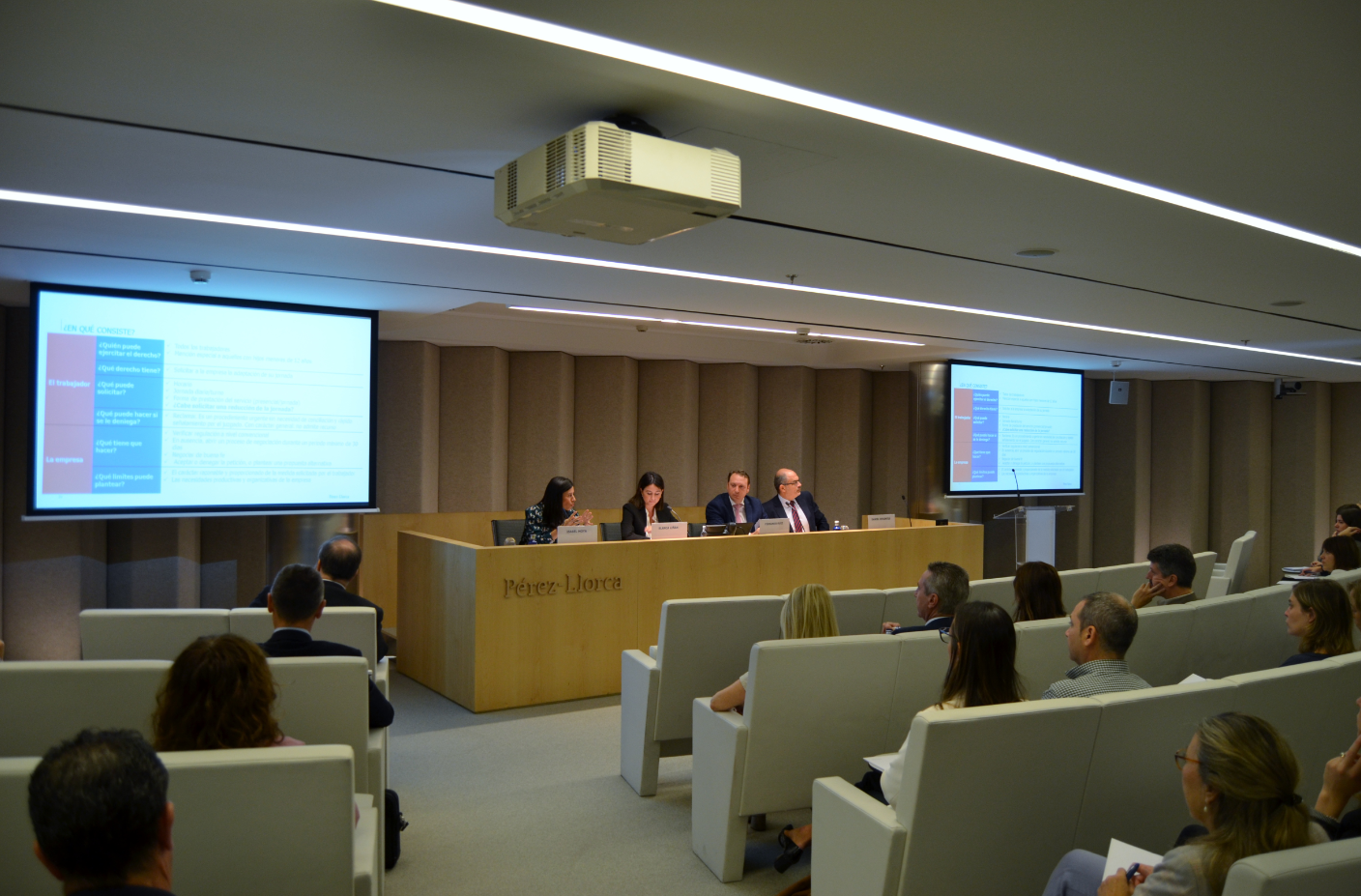Daniel Cifuentes and Fernando Ruiz, partners of the firm’s Employment practice, as well as Isabel Moya and Blanca Liñán, who are associates on the same team, all participated in the latest ‘Pérez-Llorca Labour Law Update’ seminar of 2019.
Isabel Moya and Blanca Liñán opened the session by analysing one of the legislative changes introduced in May: custom working days (known as “jornadas a la carta”), which aim to promote reconciliation between working and family life. They both explained how, following the amendment of article 34.8 of the Workers Statute, employees are now able to ask their employer to adapt their working day.
In this regard, the speakers explained that a worker has the right to propose an adaptation to their working day, in other words, to suggest a change in schedule, shift and even workplace. They reiterated that “the worker does not have the absolute right to be automatically granted an adaptation to their working day, but is able to request it.”
They agreed that “upon receipt of such a request, the company must initiate a negotiation process lasting for a maximum period of 30 days to analyse its feasibility. Once this process is complete, the employer may accept or deny the request, but has the duty to negotiate in good faith and propose alternatives when possible.”
In any case, the speakers recommended that companies always request the documentation needed to assess the proportionality and reasonableness of the request, and that they give a detailed explanation if they decide to refuse the request, or agree on limits if they choose to grant it.
Daniel Cifuentes then discussed various current legal trends as regards labour matters. In particular, he analysed the numerous disputes arising from new forms of employment. For example, he indicated that the Supreme Court must now rule on the controversial issue of “riders”, in light of the diverging decisions from lower courts. Cifuentes also discussed the impact of implementing the obligation to register the working day, which has led to an 11% decrease in overtime recorded compared to the previous year.
He then summarised the 20 most significant judgments handed down by the Court of Justice of the European Union, the Supreme Court and the National High Court, which covered a wide range of topics including fundamental rights, dismissals, strikes, substantial modifications, collective bargaining, salaries, transfers of undertakings, working time and holidays.
After this, and as is customary at ‘Pérez-Llorca Labour Law Update’ sessions, Fernando Ruiz presented the “Top 3”, a section of the seminar which ranks the three most important labour rulings from the past few months.
Firstly, Ruiz highlighted the judgment issued by the National High Court, of 4 July 2019, concerning the types of dismissals that do not count towards the thresholds for collective dismissal. He explained that “the judgment states that disciplinary dismissals where no claim has been filed or where it has been withdrawn, objective dismissals under Article 52 d) of the Workers Statute (i.e. dismissal for absenteeism) where no claims have been filed, and disciplinary and objective dismissals under article 52 d) of the Workers Statute which are awaiting judgment or trial do not count.”
Ruiz then discussed the judgment of the Court of Justice of the European Union of 18 September 2019, which establishes that, in the case of shift work with variable hours, there is no entitlement to certain fixed working hours in order to look after children who are minors.
Fernando Ruiz ended the event by commenting on the most significant judgment of the session, namely the judgment handed down by the Constitutional Court on 6 May 2019, which establishes the test to determine whether there has been a violation of personal and moral integrity under article 15 of the Spanish Constitution.
